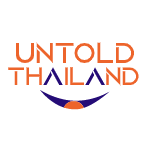Thailand represents a fascinating cultural landscape where traditional values and modern influences intersect, particularly when examining the experiences and roles of women in contemporary society. Women in Thailand navigate a complex social environment that blends deep-rooted cultural traditions with rapidly evolving global perspectives. From urban centers like Bangkok to rural villages, Thai women demonstrate remarkable resilience, adaptability, and diversity in their personal and professional lives. Understanding their experiences requires a nuanced approach that respects cultural complexity and acknowledges the multifaceted nature of gender dynamics in this vibrant Southeast Asian nation.
Historical Context and Cultural Background
The historical trajectory of Thai women reveals a rich and intricate narrative of social transformation. Traditional Thai culture has long emphasized familial respect, hierarchical relationships, and collective community values. Women historically played crucial roles as caretakers, preserving cultural traditions and maintaining familial harmony. Buddhist philosophical influences significantly shaped gender expectations, promoting principles of compassion, restraint, and interdependence. Despite prevalent patriarchal structures, Thai women have consistently demonstrated remarkable agency and strategic negotiation of social boundaries.
Archaeological and anthropological evidence suggests that women in ancient Thai kingdoms held comparatively progressive positions relative to many contemporary societies. They participated in economic activities, owned property, and maintained significant social influence within family and community structures. This historical context provides important background for understanding contemporary gender dynamics in Thailand.
Education and Professional Opportunities
Modern Thai women have made extraordinary strides in educational attainment and professional development. Recent statistical data indicates that women now consistently outperform men in higher education enrollment, representing approximately 60% of university graduates. Fields like medicine, law, business, and technology increasingly feature prominent female leadership. Urban centers like Bangkok showcase a generation of highly educated, professionally ambitious women challenging traditional gender role expectations.
Economic empowerment has become a critical avenue for personal and societal transformation. Many Thai women leverage educational opportunities to create sustainable career paths, contributing significantly to national economic development. International corporations and local businesses increasingly recognize the strategic value of female talent, implementing progressive hiring and advancement policies.
Social Expectations and Personal Autonomy
Navigating social expectations remains a complex challenge for contemporary Thai women. Cultural norms emphasizing familial obligations, respectful behavior, and traditional femininity continue to influence personal choices. However, younger generations are increasingly challenging these frameworks, asserting greater personal autonomy and reimagining traditional gender roles. The tension between conservative social expectations and progressive individual aspirations creates a dynamic, evolving social landscape.
Marriage and relationship dynamics have also transformed significantly. While arranged marriages and traditional family structures persist in some communities, urban and educated demographics demonstrate more individualistic approaches to partnership. Women increasingly prioritize personal compatibility, shared values, and mutual respect over purely economic or familial considerations.
Cultural Identity and Global Perspectives
Thai women represent a sophisticated intersection of local cultural identity and global consciousness. Many successfully integrate traditional values with contemporary global perspectives, creating unique hybrid identities. Language skills, technological proficiency, and cross-cultural understanding enable many Thai women to pursue international opportunities in education, business, and cultural exchange.
The rise of digital connectivity has further expanded horizons, allowing unprecedented access to global information, educational resources, and professional networks. Social media platforms and international communication technologies have become powerful tools for personal and professional development, challenging traditional geographical and social limitations.
Challenges and Future Trajectories
Despite significant progress, Thai women continue confronting systemic challenges including workplace discrimination, limited leadership representation, and persistent gender stereotypes. Sexual harassment, unequal pay, and limited career advancement opportunities remain critical issues requiring sustained societal attention and structural reforms. Grassroots movements, legal advocacy, and increased public discourse are gradually driving meaningful institutional changes.
The future promises continued evolution, with emerging generations of Thai women demonstrating unprecedented levels of education, ambition, and social consciousness. Strategic investments in gender equality, educational access, and professional development will be crucial in unlocking the full potential of this dynamic demographic.
Understanding Thai women requires moving beyond simplistic stereotypes toward a nuanced appreciation of individual experiences, cultural complexities, and ongoing social transformations. Their stories represent a powerful narrative of resilience, adaptation, and progressive change, offering profound insights into the intricate dynamics of gender, culture, and personal empowerment in contemporary Southeast Asia.









